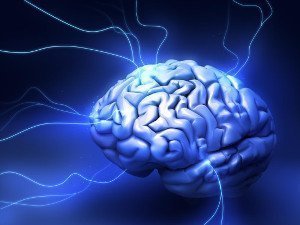
Autism is not a disease?
Thus, this study acknowledges that autism is not a “disease”, but a construction by which symptoms are described that we collectively call autism. I myself have hated the term “disease”, “ condition” or “disorder” associated with autism for a long time. This more because it only emphasizes the negative sides of autism and completely ignores the positive sides. But the fact that scientists now also indicate that calling autism a disease is not right is a relief to me.
Personally, I think that naming autism as a “construction” can help to look at autism in a different way and the stigma attached to it. Autism consists of many different parts, and is very diverse, so it is difficult to see it as one disease.
Especially the quote “Terms such as “disease” are inappropriate and scientifically incorrect when referring to autism” makes me very happy!
Heredity as a cause differs greatly between studies
In my opinion the difference between studies is quite striking. A margin of 50 (40-90%) is a big difference. Of course heredity doesn’t tell anything about one person, but I myself thought heredity played a bigger role in causes of autism than it turns out to be.
What does this say for future research? Actually only that more research into heredity is desirable. However, this is research that takes a lot of time, also because many people only get the diagnosis at a later age. This means that it is sometimes no longer possible to examine parents or grandparents for autism, for example.
“Natural” medications/disadvised to go to a naturopath
There are many quacks on the internet that offer the most insane solutions for “curing” the most diverse ailments. Partly because of the hatred propaganda of organizations which claim that “autism is the worst thing which can happen to your child”, they find a breeding ground among parents of autistic people. They portray autism as one of the worst things that can happen to you. They stress that autistic people “have no chance of a good life”, and that “autism is an epidemic that is taking over the world.
Of course, the people who make these claims have the solution to “this terrible disease” in all sorts of forms. This is how most of these things work; first spreading fear and then offering a solution. I think it is very good that these kinds of practices are closely monitored, especially if they are demonstrably harmful to health. For example, drinking bleach to “erase autism” or similar actions.
I know that there are people who benefit from visiting naturopaths and/or homeopaths, and as long as this is not harmful to their environment, I don’t have a problem with it. However, as soon as people start to evade medical treatment on the advice of such people (think of vaccinations for example) I think we have a problem.
Theories of autism
So it is becoming increasingly clear that we actually know less and less about autism. More research is needed into the specificities. But there’s also a big deviation in what science wants to investigate about autism, and what the community would actually like to know:
Research into how we can improve the lives of autistic people is not being done enough. There is research on where autism comes from and how it can be recognized in the brain, but too little on what kind of adjustments are needed to live better. This is also recognized in this research:
More points
These are a few points I selected from the whole thread on twitter by Dr. Ruby Sapphire and I haven’t discussed all of them yet. More points have been mentioned that are definitely worth reading.
But these were the points that stood out for me. All in all an interesting piece to read and a good starting point for future scientific research.